Jewish-Kurdish Ties Inform Crisis Response
WIth Kurdistan in the news, it is worth learning about the history of Jews in the region and how Israel is impacted by the U.S.'s withdrawal of troops from Syria.
Dave Schechter is a veteran journalist whose career includes writing and producing reports from Israel and elsewhere in the Middle East.
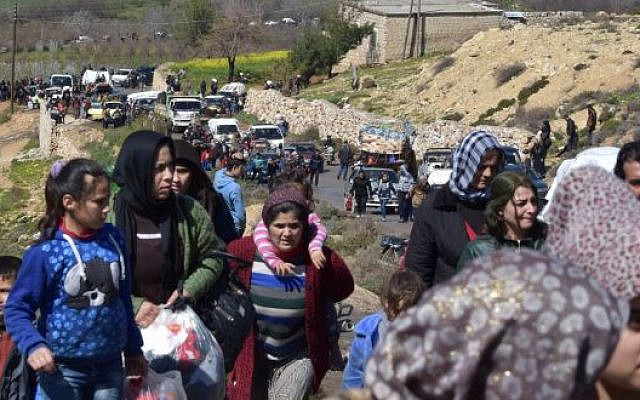
Jewish history in historic Kurdistan – which includes parts of modern-day Turkey, Syria, Iraq and Iran – dates to the eighth century B.C.E. (Before Common Era) and the arrival of descendants of the ten tribes following the Assyrian conquest of the Kingdom of Israel.
Fast forward through 2,700 years of interaction, much of it commercial, and you arrive at the early 1950s and a large migration of Iraqi and Kurdish Jews to the nascent state of Israel, including airlifts known as Operation Ezra and Nehemiah (also referred to as Operation Ali Baba).
Israel is now home to more than 200,000 Jews of Kurdish descent. The number of Jews remaining in the Kurdistan region is estimated to be in the hundreds. The Kurdish population of the United States is estimated at 40,000, with perhaps half in the Nashville area. The number in the Atlanta area is estimated at several hundred.
Those ties help explain the reaction of American Jews and Israelis to President Donald Trump’s order that U.S. forces be withdrawn from northern Syria in front of a Turkish military offensive against the Kurds.
(The situation on the ground in Syria is best described as fluid. Readers should consult credible sources for the latest developments.)
An estimated 25 million to 35 million Kurds live in Turkey, Iraq, Syria, Iran and Armenia. Though most Kurds are Sunni Muslims, their population has a diversity of cultures, religions, languages and political structures.
“Turkey has long been unhappy about the strong Kurdish presence in northeast Syria near the Turkish border,” CNN reported. The goal of Turkey’s military operation, dubbed “Operation Peace Spring,” is to push the Kurds away from the border, creating a buffer zone in which to resettle some 2 million Syrian refugees.
Kurdish forces in Iraq and Syria suffered thousands of casualties while fighting alongside troops of a U.S.-led coalition against ISIS (Islamic State in Iraq and Syria).
After President Trump spoke Oct. 6 to Turkish President Tayyip Erdogan, the White House issued a statement that said, “Turkey will soon be moving forward with its long-planned operation into Northern Syria. The United States Armed Forces will not support or be involved in the operation, and United States forces, having defeated the ISIS territorial ‘Caliphate,’ will no longer be in the immediate area.” The order affects roughly 1,000 U.S. troops.
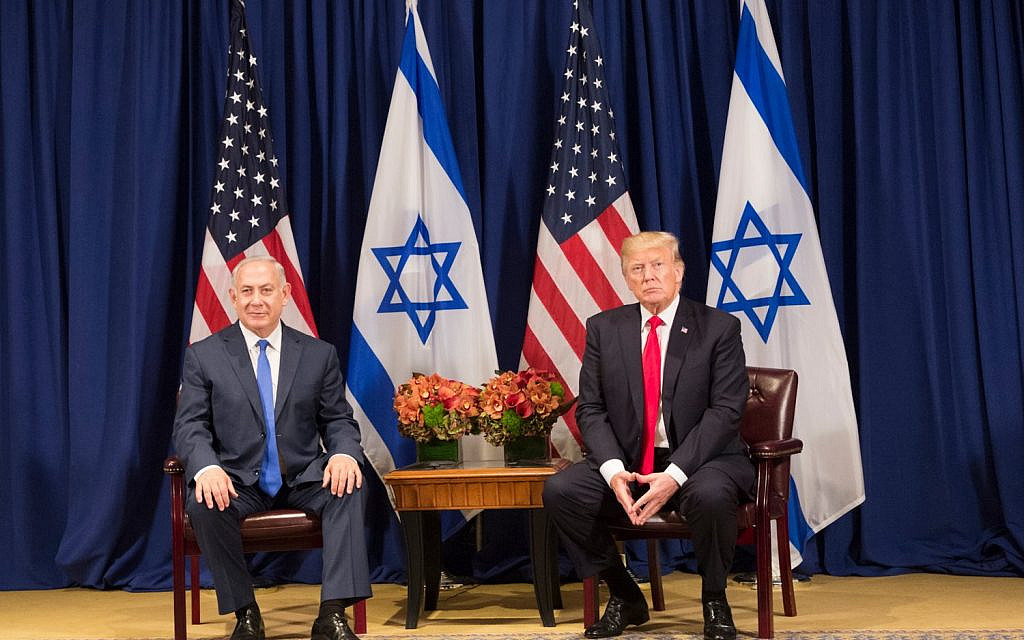
According to news reports, atrocities have been committed against the Kurdish population and hundreds of captured ISIS fighters have escaped prison since Trump’s initial order and the start of Turkey’s military action. Trump on Oct. 14 announced his intention to impose sanctions against Turkey for its “destabilizing actions in northeast Syria” and threatened to “swiftly destroy Turkey’s economy.”
Without referring directly to Trump, Israeli Prime Minister Benjamin Netanyahu said Oct. 10 on Twitter: “Israel strongly condemns the Turkish invasion of the Kurdish areas in Syria and warns against the ethnic cleansing of the Kurds by Turkey and its proxies. Israel is prepared to extend humanitarian assistance to the gallant Kurdish people.”
Netanyahu previously had said, “Israel supports the legitimate efforts of the Kurdish people to attain a state of its own.” There is no recognized Kurdish nation. The semi-autonomous Iraqi Kurdistan regional government estimates that about 30 percent of its 6.5 million people are refugees from fighting in Syria and Iraq.
“I feel like a Kurd today,” Dore Gold, a former Israeli ambassador to the United Nations and foreign-policy official under Netanyahu, told The New York Times in an article published Oct. 8.
In the same New York Times article, Michael Oren, a former Israeli ambassador to the United States under Netanyahu, expressed concern about whether Israel could count on the U.S. in the event of war. “I don’t think Israel can bank on that today. I don’t know now. And it’s enough to say I don’t know,” Oren said.
The Jewish Community Relations Council of Atlanta endorsed an Oct. 11 statement issued by the Jewish Council for Public Affairs, a network of 125 local community relations councils and 17 national Jewish agencies. “It is unconscionable that this nation would desert our Kurdish allies, who have fought the battle against ISIS. This brazen abandonment of a US ally will communicate to others that our country cannot be depended upon. It will make the world, and the US, a more dangerous place,” said JCPA chair Michael Fromm.
Rabbi Joshua Lesser of Congregation Bet Haverim has maintained a unique friendship with Dr. Heval Kelli, a Kurdish refugee from Syria, who in a decade’s time went from washing dishes at a restaurant near Emory University to being a cardiologist in its hospital.

At Lesser’s invitation, Kelli spoke at Congregation Bet Haverim’s memorial service following the Oct. 27, 2018, massacre of Shabbat worshippers at the Tree of Life synagogue in Pittsburgh. Five months later, Lesser helped Kelli arrange a vigil in Clarkston, a city with a significant refugee population, after terrorists killed 50 people on March 15, 2019, at two mosques in Christchurch, New Zealand.
“In the most general sense, as Jews, given our history, we must raise awareness to the dangers of ethnic cleansing,” Lesser said. “This is the likely fate of the Kurds now that we have turned our backs on them. Specifically, the Kurds are the largest nation in the world who are stateless. They are a democratic people, who should be supported in the region and most evident have done the heavy lifting at keeping ISIS at bay, which has benefitted Jews, the U.S. and Israel. There is a reason that Netanyahu broke ranks from Trump to speak out on behalf of the Kurds and offered them sanctuary,” Lesser said.
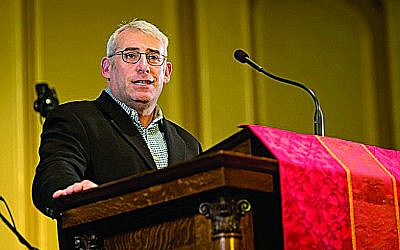
Atlanta resident Benjamin Kweskin and his wife, Whitney, lived in Erbil, the capital of Iraqi Kurdistan, in 2013-14, working as a journalist and educator, respectively. Whitney Kweskin worked as a teacher and as volunteer program coordinator for the English program at the Kawergosk refugee camp for Syrian Kurds.
Benjamin Kweskin was senior editor and policy writer for a pro-Kurdistan English-language website.
“As the fourth-largest ethnic group in the Middle East, Kurds have a history that spans thousands of years,” he wrote in the AJT in February 2015. “Kurdistan also had been the home to a remarkable and often thriving Jewish community for nearly 3,000 years. Many villages and towns featured a great deal of mutual respect and friendships, and some villages were inhabited entirely by Jews.”
Speaking in recent days, Kweskin said, “This destabilization will reverberate through the region and the shock waves will certainly affect Israel. For Israel, they see the U.S. also betraying the Syrian Kurds and this does not bode well for U.S.-Israel relations under the Trump administration.”
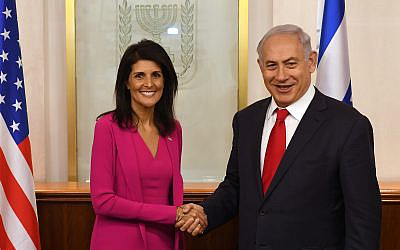
Trump’s decision also was criticized by two upcoming speakers at the Book Festival of the MJCCA, coming from opposite sides of the political aisle.
Nikki Haley, U.S. ambassador to the United Nations from 2017-19, posted Oct. 7 on Twitter: “We must always have the backs of our allies, if we expect them to have our back. The Kurds were instrumental in our successful fight against ISIS in Syria. Leaving them to die is a big mistake. #TurkeyIsNotOurFriend.” Haley, the Republican former governor of South Carolina, is scheduled to discuss her new book, “With All Due Respect,” on Nov. 17 as part of the book festival.
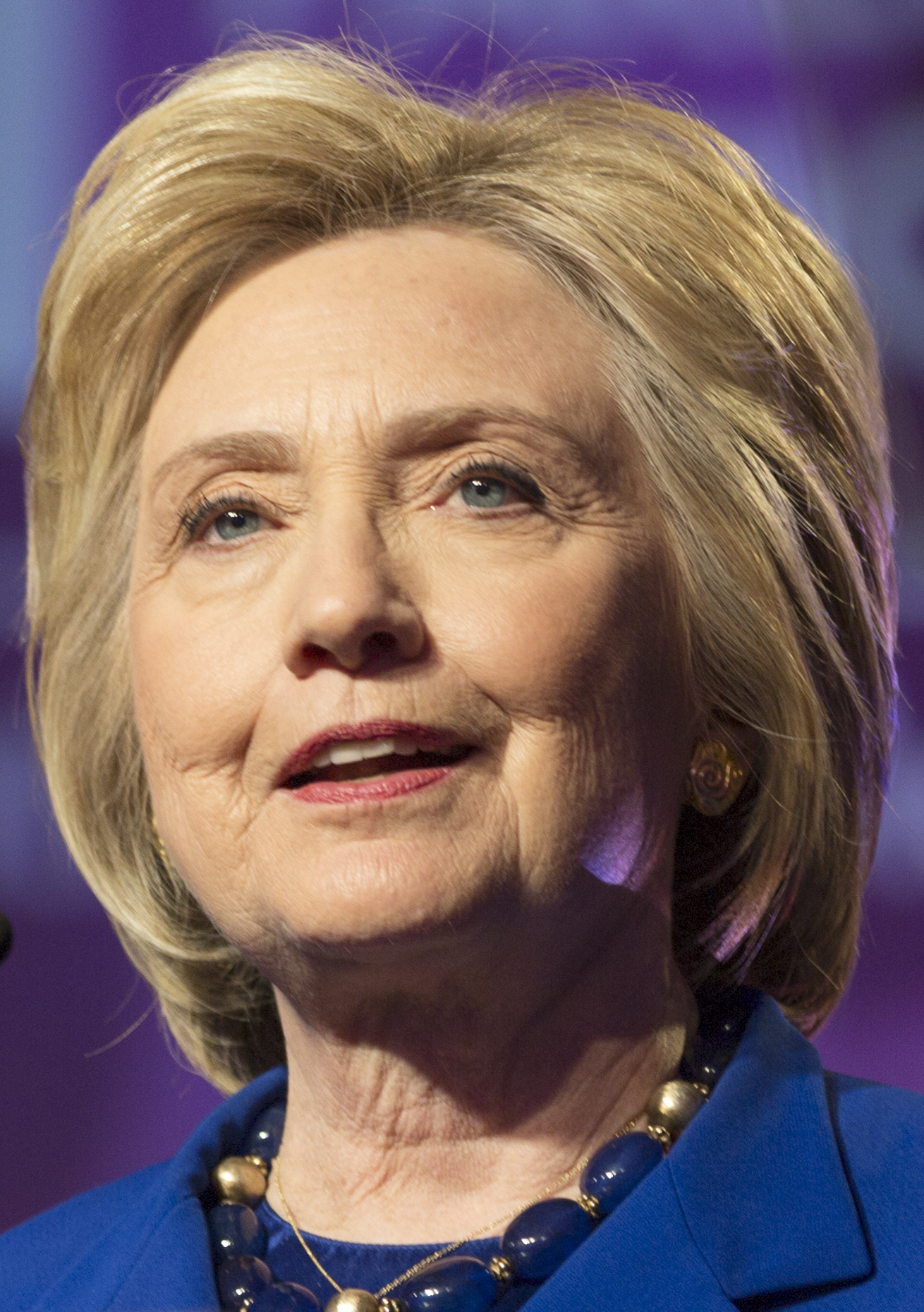
Minutes before Haley’s post, former Secretary of State Hillary Clinton, who is a Democrat, posted on Twitter: “Let us be clear: The president has sided with authoritarian leaders of Turkey and Russia over our loyal allies and America’s own interests. His decision is a sickening betrayal both of the Kurds and his oath of office.” Clinton and her daughter Chelsea are scheduled to discuss their new book, “The Book of Gutsy Women,” on Nov. 18 as the closing event of the book festival.



comments